I copied and pasted a certain source code into my program with a text editor. I basically need to confirm that the source code begins with "int main()" so I went ahead and compared line with "int main()" but the comparison always returned false.
I decided to strip the string into characters and found something weird.

so string line has "int main()" passed inside it which is the text that has been pasted inside the text editor. You would think a and b would have the same characters, but they don't:

I'm honestly not sure where is that quotation mark in the beginning coming from. The original string didn't contain it, the debugger doesn't show it (It would display "\"int main()\"" otherwise). What is happening here?
Edit: I tried line = line.Trim(). Still that character is not gone. Apparently it's some special unicode character for Zero width no-break space. How can I remove this from my string?